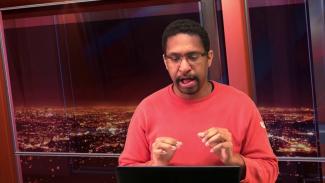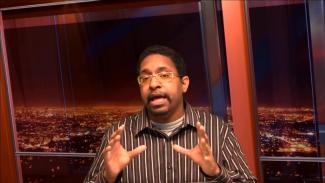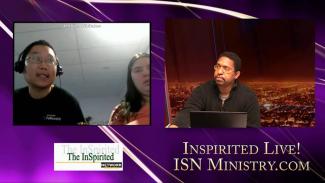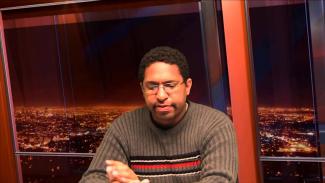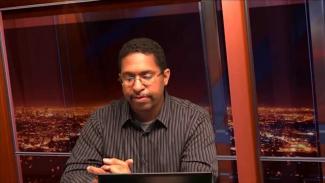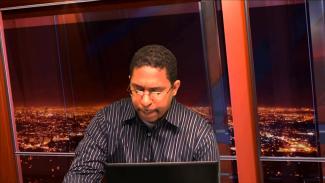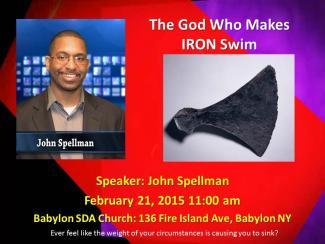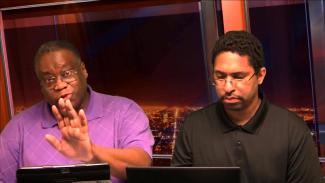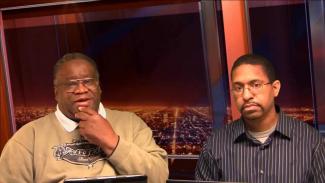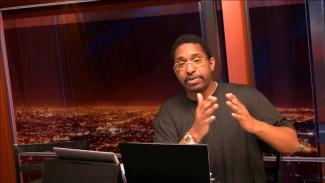Topic: Spiritual Gifts
To see more broadcasts select show names, a year, or all video media.What does it mean to be a leader? How are leaders to shepherd God’s flock? How does worldly leadership compare with spiritual leadership? What can we learn about leadership from God Himself? Is it really possible to have leadership without partiality? What is the role of an elder? What did Peter learn about leadership from Jesus? How does all this compare with Satan’s rebellion and counterfeit leadership?
What are the gifts of the Spirit? Are the fruit of the Spirit and the gifts of the Spirit the same thing? Why does God give spiritual gifts to the church? Why are different gifts distributed to different people? How can we test the spirits to know the genuine from the counterfeit? Are some gifts better than others? Is there a difference between gifts of the Spirit and natural talents or abilities?
What if there was a way to know the future of our world and what if that future could be filled with hope? What if there was a bright and exciting future that has been planned for you since the beginning of time? With all the chaos and uncertainties in our world today, many are concerned about the future of our nation, the stock market, politics, and even the fate of the planet itself. But what if everything: the wars, the divisions, the disasters… were all on schedule, pointing us toward a future event that would change life as we know it?
What challenges and obstacles did the Early Church face? How did Jesus redirect his disciples to his true purpose while they still held on to their pre-conceived ideas and biases? What exactly is the good news of the gospel and in what way were Jesus' followers witnesses? How did the Great Controversy play out in the early church? In what ways did Satan attack the church from within and without? What can we learn from the Early Church that could help us with our challenges today?
This week we start a new quarter on the book of Jeremiah the Prophet. How was this prophet called? What can we know about his background and ministry? What exactly is a prophet's job? What kinds of messages does God send through prophets? How does God communicate with prophets? Are they always willing to accept the call? Will people readily accept their message? In what way was Jeremiah's experience similar to that of Jesus? This week we take our first look at Jeremiah.
This week we discuss Philip the evangelist. But is this Philip different from other Philips in the Bible? How can we know for sure? What can we learn about mission work from what the Bible says about this Philip? Why was Philip chosen to serve as a deacon? What qualities did he have that made him stand out? What events later lead to his success as an evangelist? What can we learn from this as Christians today? What does the prophetic ministry of Philip's daughters say about Philip? What might this mean for those called to ministry today?
What can we learn from Peter's outreach to the gentiles? How did it contrast from Paul's? What can we learn from the story of Cornelius and the conversion of his friends and family? What important lessons did Jews of the early church have to learn? What might that mean for the church today? Does culture or race matter when it comes to salvation? This week as we explore these lessons we'll look at the stories of early gentile converts to Christianity.
What does the Bible teach about the Holy Spirit? Is the Holy Spirit really divine? Is the Holy Spirit a person, thing, or power? What does the Spirit do in the lives of individuals and how can one know when they have the Holy Spirit? Based on the teachings of Jesus, what can we know? These questions are explored in this week's lesson. You will also learn how to tell the difference between a good person and one who is filled with God's presence.
God chose spiritual leaders from the, seemingly, most unqualified followers. Why? What made them the best choice? How did Jesus go about choosing the apostles who would lead His church? How should we choose spiritual leaders today? How did Jesus prepare His apostles for the challenges ahead, and what might that say about how our spiritual leaders should be prepared? We explore these themes in this week's lesson.
What is the difference between revival and reformation? Which comes first? Is reformation really necessary at all? Does Jesus do all the work or is there an element of human participation in the process of reform? Does God really want to see change in our actions? How do we cooperate with God? This study will explore the theme of reformation and examine Jesus' disciples before and after reform. What if these men were allowed to stay the same and never went through reform? What kind of leaders would they be? How does reform or lack of reform influence the advancement of God's Kingdom?

